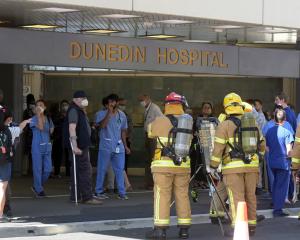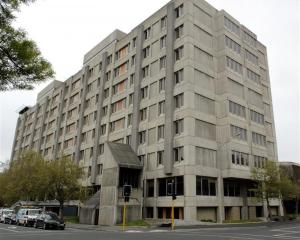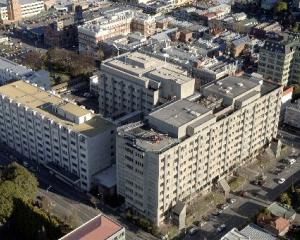An electronic prescribing pilot scheme in two Dunedin Hospital wards has been so successful it should be extended throughout the hospital, Dr Andrew Bowers says.
Dr Bowers, who is an internal medicine specialist as well as the clinical leader of the project, was "very pleasantly surprised" at the way the recently completed pilot had been received.
Staff support had been considerable, with one charge nurse stating there "would be a riot" if the wards reverted to the old system, he said.
Under the pilot, doctors prescribed electronically, using software with many checks and warnings built in to overcome inadvertent errors.
This software alerts prescribers to incorrect dosages, ensures the prescription is relevant to the condition, and shows whether the planned medication is likely to cause a problematic interaction with some other drug the patient may be taking.
In some circumstances, the system will put a block on a medication being dispensed from the pharmacy, and to unblock it the pharmacist will need to discuss the issue directly with the prescribing doctor.
During the pilot, in internal medicine and gastroenterology wards 8a and 8b, one of the most dramatic drops in errors has been in incorrect or missing information which was reduced from 82% down to nothing.
Dr Bowers said it was estimated electronic prescribing could reduce medication errors by about half.
He had chosen wards 8a and 8b for the trial because of the difficulties patients in such wards posed.
All were acutely unwell, most were elderly with multiple medications, and many patients were also unable to assist the doctor with information. If the system worked with these patients, extending it to other areas would be relatively easy.
Details about the improvements noted will be reported to the Southern District Health Boards hospitals' advisory committee this weekIt has not been all plain sailing in the pilot.
The wireless laptop system used when nurses were administering medications struck a few teething problems when the large metal meal trolleys interfered with reception, but work was being done to overcome that.
An innovation during the pilot has been the development of ward computer charts, updated every five minutes, showing what medications are due, overdue, and those which have been administered..
Dr Bowers considered the biggest hurdle to getting the programme extended would be funding.
Until now, the programme has been funded by the Ministry of Health and he estimated that the total cost was about $900,000.
If funding were available, he estimated it could take two years to introduce it throughout the hospital.
Several other district health boards including Counties Manukau, Taranaki and Waitemata have shown interest in introducing a similar system.
Advertisement









